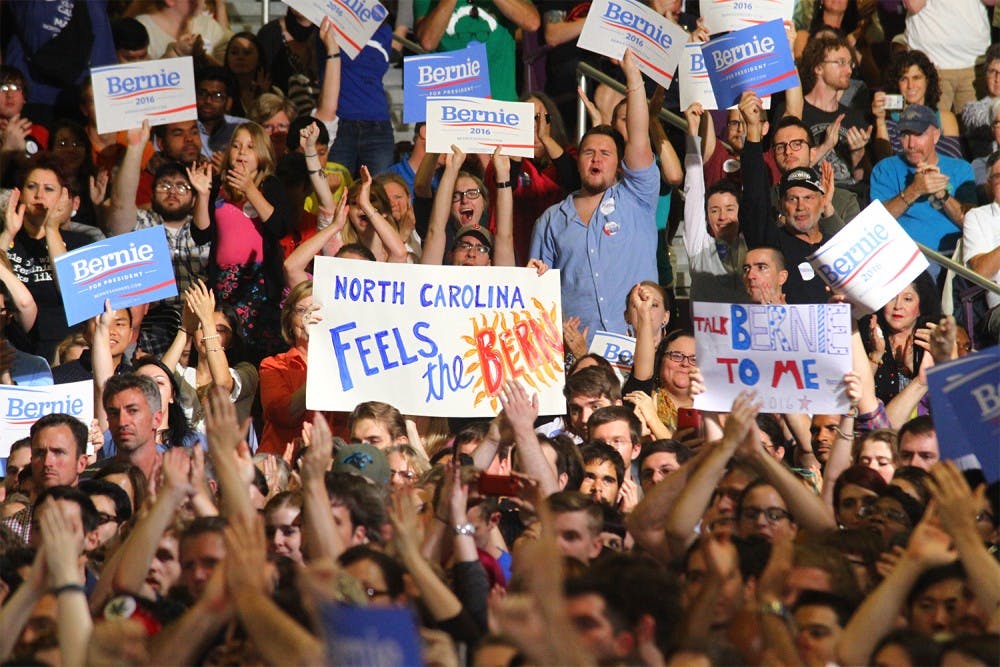The Democratic candidate is a self-proclaimed ‘democratic socialist,’ an ideology that advocates a democratic political system alongside a socialist economy. His brand of ‘socialism’ endorses tuition-free public education, single-payer Medicare and public funding of elections.
“There’s a lot of stigma around that word,” said Buck Hinman, a senior journalism major at Wake Forest. “I don’t think people know what it actually means. I think that if his policies work for the United States, it doesn’t matter what you want to call him.”
He said the most significant moral, economic and political issue facing the U.S. is the “grotesque” level of income inequality and disparity.
“My Republican colleagues get very nervous when we talk about redistribution of wealth — what all of you should know, and must know, is there has been in the last 30 years a massive redistribution of wealth in this country — the problem is, it has gone in the wrong direction.”
To close the income divide, Sanders said he wants to eliminate tax breaks for the wealthy, create jobs domestically by investing in education and infrastructure and raise the minimum wage to $15 per hour — in addition to tuition-free public education and reforming Medicare.
In May, Sanders introduced the College for All Act, which proposes tuition-free public education, which he said would be funded by a tax on Wall Street speculation.
“This campaign is sending a simple message to the billionaire class — and that message is, ‘You cannot have it all.’ That is not what this country is supposed to be about,” he said.
“The greed — the unquenchable greed — of corporate America is destroying this country, and we are going to stop that.”




